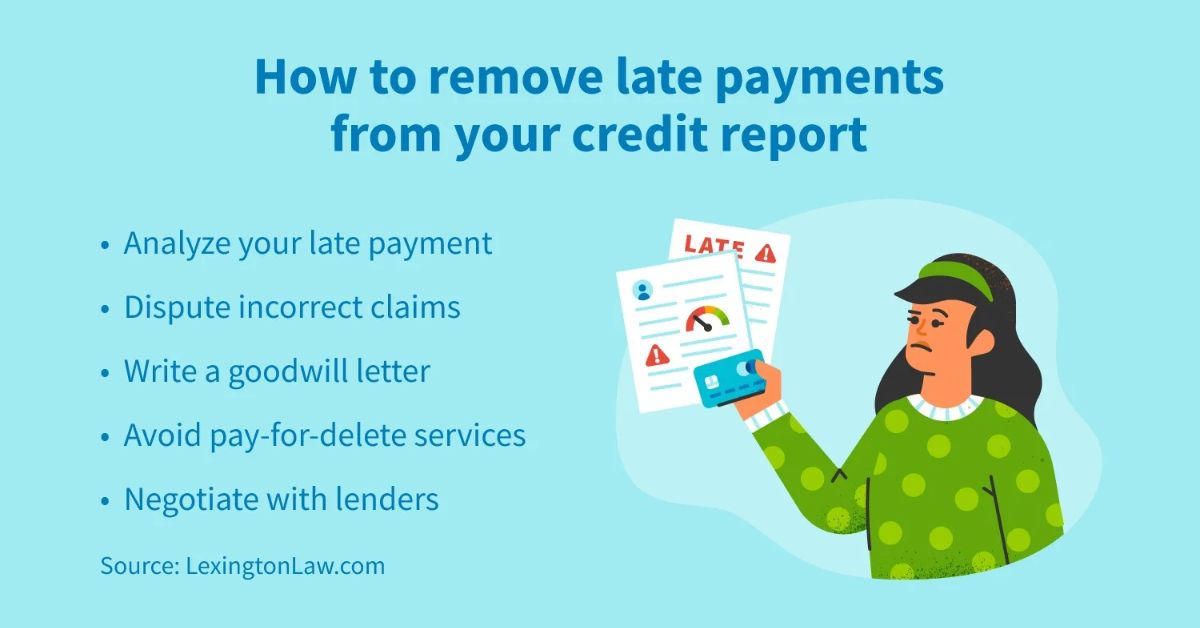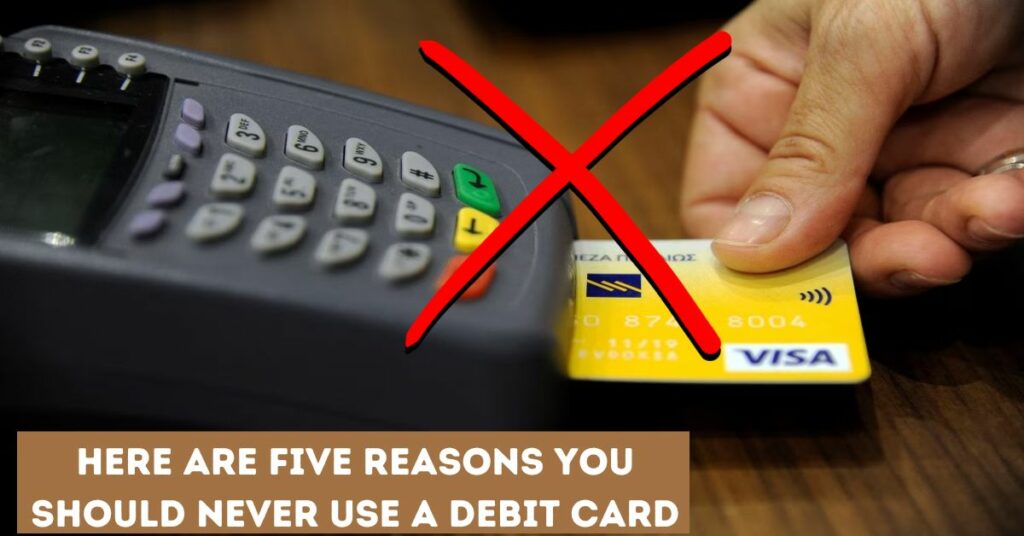There are a number of things that can show up on your credit report, but your payment history will always be the most influential. In reality, payment history (including on-time and late payments) accounts for 35% of the total weight in determining your credit score.
This implies that it is crucial to keep track of when each payment is due in order to preserve the good credit that you have worked hard to establish. Find out how credit scores are affected by missed payments and how to restore them if this happens to you by reading on.
How do Late Payments Affect your Score?
A delinquent (late payment) can drop your credit score by as much as 100 points. If your credit score is quite high (above 600), you should expect a larger decline as a result.
Similarly, if your credit history is small, even a couple of late payments might have a significant impact. This is because prospective lenders have no personal knowledge of you and must make their decision about whether or not to provide you a loan based solely on the scant data provided by your brief credit history.
Making payments as quickly as possible is recommended, as late payments have a negative impact on your credit score. Paying late is better than not paying at all, but “better late than never” only goes so far when it comes to credit reports and scores.
How to Remove Late Credit Card Payments from your report?
Find out if the mark was listed inadvertently or was an error on your side before contacting your lender about eliminating bad items from your report. Here’s how to get incorrect overdue fees waived, whether the mistake originated on their end or yours.
If you’d want to read more about money-related topics, here are some other articles to peruse:
- How to take your business to the next level with a talented CFO hire
- Biden financial aid: There’s “broad support” for 4 portions of stalled Build Back Better
1. Analyze your late payments
You should review your credit report annually in addition to monitoring your daily expenses and total balance. One free credit report from each of the three major bureaus (Equifax®, TransUnion®, and Experian®) is available once every year.
To keep your credit in good standing all year without spending a dime, simply obtain your free report from one of the credit agencies every few months.
Any delinquent payments you find when reviewing your record should be no more than seven years old. Old delinquencies can sometimes linger on your credit record even after their statute of limitations has run out, though this is unusual. You should contact the bureau and submit a dispute if you discover an old late payment listed there.
2. Dispute Incorrect Claims
If you don’t identify a late payment that occurred during the last seven years, it’s possible that your lender reported it incorrectly. You can challenge this item by contacting the credit reporting agency, your credit card issuer, or your collection agency directly. The business has 30 days to look into the matter and issue a decision.
Having documentation showing that you paid on time will strengthen your argument. To expedite the process, please include a copy of your payment receipt or bank statement showing the date the payment was made.
There are a few options available to you if you want to raise your credit score by eliminating late payments that were accurately reported. It’s worth noting, though, that it’s exceedingly unusual to effectively remove late payments that weren’t reported in error.

3. Write a Goodwill Letter
Sending your creditors an official letter of good faith explaining the circumstances behind a late payment may help you avoid negative marks on your credit record. If you’ve fallen on hard times financially owing to circumstances beyond your control, a goodwill letter may help.
Illness, the loss of a job unexpectedly, and natural disasters are just a few examples. It’s crucial to be polite, honest, and sincere while writing a letter of goodwill.
Talk about your positive credit history and what you’ll do to prevent future late payments. Try calling, emailing, or mailing updates on your current on-time payments if you haven’t heard back after a few months.
4. Send a Pay for Delete Letter
Pay for delete services could help you if you have a lot of debt. In a settlement agreement with debt collectors or the original creditor, this procedure can erase unfavorable things from your credit record, but it is not without danger. A commitment to pay, for instance, can toll the clock on a debt that would otherwise be uncollectible and make its recovery legally binding.
5. Talk with Financial Institutions
Direct negotiations with your lender are one of your last resorts for changing your credit report. Lenders may be persuaded to remove a late payment if you agree to pay the entire balance in a lump sum or set up automatic payments to ensure it doesn’t happen again.
People with a history of timely payments or those who have recently experienced a financial setback like job loss tend to benefit most from this strategy.
How Late does a Payment have to be to Affect your Credit?
You have a month to complete that payment before it can legally be reported to the credit bureau, which means it won’t hurt your score. If you’re unable to make a payment within the allotted 30 days, you should make up for it as soon as you can because a delinquent account negatively affects credit scores.
Even if you pay inside the grace period, you may still face additional penalties for being late. Even while this won’t have any effect on your credit score or report, credit card companies often start charging late fees as soon as the due date passes.
Call your credit card company and see if you can negotiate a reduction in your late payment fees if you have a good payment history with them. If you’re ever late making a payment on a credit card, you might be surprised to learn that some firms will waive the fee the first time it happens.
The following links will take you to other articles on finances that you are invited to read:
- Top 10 Most Common Financial Mistakes
- Building Wealth: How to Set and Prioritize Your Financial Goals
How long does a late payment stay on your credit report?
Your credit report will show late payments for seven years. No matter how many times you’re late with a payment or how often it happens, this rule always holds true. There is no point at which the seven-year period resets, so you need not worry that future late payments may extend the total.
The negative effect of the overdue payment will fade over time. When creditors or loan agencies run a credit check, the missed payment will no longer be visible after seven years.
Now that your credit report is spotless, you may get back on the road to building a high score. We’ve already discussed a couple choices you have if you want to have bad marks removed earlier than the seven-year time restriction.
How to Recover your Score after Late Payments?
If none of the aforementioned solutions worked, the greatest thing you can do to start rebuilding your credit is to avoid making the same mistakes in the future. When late payments are older than seven years, they tend to have less of an impact on a credit report. Follow these steps to improve your score.
Make it a one-time occurrence
To prove to lenders that your late payment was an honest error, you should make every effort to ensure it will be the only one. When you ask for credit, whether it’s a loan, a mortgage, or a new credit card, the lender will have more faith in you.
Those who frequently miss their payment deadlines can consider setting up automatic payments from their bank account. Set up automatic payments only if you know you can make the full payment each month, especially if your bill fluctuates considerably from one month to the next.
Keep Card Balances Low
Regular credit card use is a great way to demonstrate your creditworthiness to lenders. However, your credit score and utilization ratio may take a hit if you allow your debt to become too high.
If you want to keep your credit in good standing and avoid accruing a lot of debt, you shouldn’t carry a balance on any card that exceeds 30 percent of your available credit. This guideline stands even if monthly payments are kept to the bare minimum.
Get your status to “current” quickly
The credit report will show the status of any loan accounts that have not been paid on time. It’s crucial to improve your score and prevent any long-term damage by getting that status changed to “current,” or paid in full, as soon as possible.
How to avoid late payments going forward
You’re probably being extra careful about future on-time payments now that you’ve gotten over the late one. Additional suggestions for future success and avoiding payment delays are provided below.
- Cut down on monthly outlays by evaluating debt consolidation and balance transfer credit card options. These help you manage your debt by reducing the number of payments you have to make each month from several to just one or two.
- Establish recurrent billing: If at all possible, investigate the process of making your various payments through automatic means. This will allow you to focus just on having sufficient funds to make the payment. If your payment amount varies from month to month, you should still pay at least the minimum amount required.
- Don’t forget: Set up regular reminders via SMS alerts, calendar nudges, email reminders, and whatever other technique you need to remember to pay your account if you’ve been late in the past due to simple forgetfulness.
- Pick your deadlines: Credit card companies often let you pick your own due date so that payments are easier to fit into your monthly budget. Don’t let yourself become behind on payments because they’re spread out on random days; instead, choose due dates that are easy to remember (like the day after you get paid).
You are more than welcome to read the further articles that are related to finances, the links to which are supplied in the following paragraphs:
- What is the Average Cost of a Road Trip Charging an Electric Vehicle?
- How Much Can You Earn and Still Qualify for SSI?
Even while it’s regrettable, missing a payment won’t have a catastrophic effect on your credit or ability to reach your financial goals. If you have tried the aforementioned solutions without success, your best bet is to press on with your credit education efforts.
Taking charge of your financial destiny and avoiding another late payment is as simple as reviewing your credit report once a year and keeping on top of your forthcoming payments.
The news may be kept up to date and some food for thought can be found on the website CaliforniaExaminer.net, which is an excellent resource.




